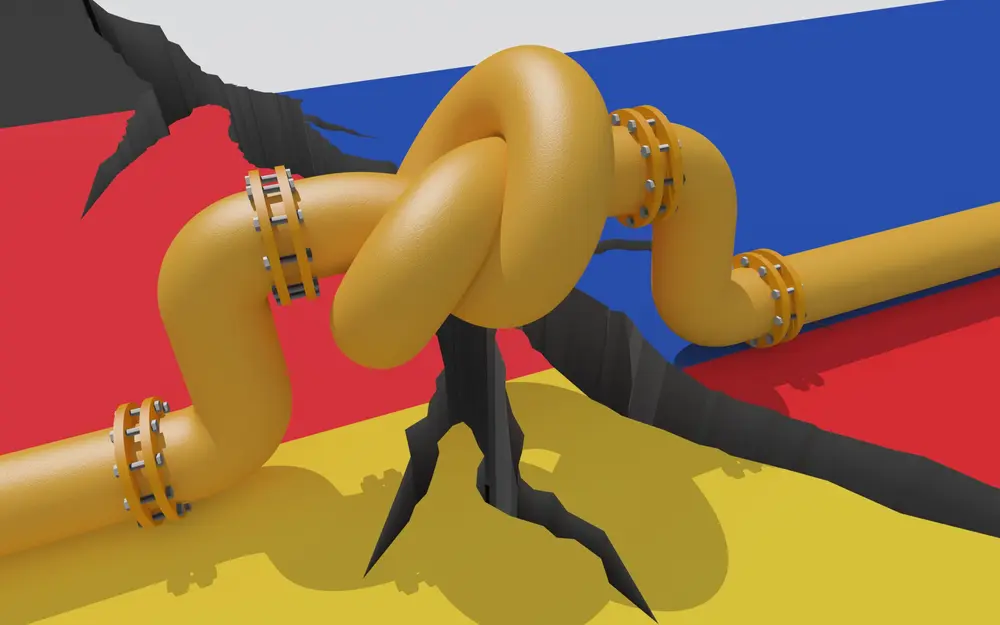
While the 8th season of Game of Thrones left many fans unsatisfied, there is hope that German energy politics might provide a thrilling 9th season. Ever since it announced its commitment to achieve independence from Russian gas deliveries as soon as possible, the German government appears to be living in fear of the famous line from the hit show: “Winter is coming.”
It is this race against time that has caused Minister of Energy and Climate Protection, Robert Habeck (Greens), to announce new measures to continue stockpiling gas before next winter. As a result of a temporary reduction of gas flow to 40% in the Nord Stream 1 pipeline—a measure chalked up to maintenance work by Russia—Habeck released a statement laying out the next steps in the process of reducing the usage of gas for electricity production, as well as announcing a special loan worth €15 billion from state bank KfW to encourage the purchase of additional gas volumes for stockpiling.
Since the decision to become independent from Russian gas as soon as possible was made in March, Germany has been trying to stockpile gas for the coming winter. But in April alone, more than 6 terawatts of electricity were produced from gas, and in May another 4 terawatts followed, which marked a new record for the month of May. This was mostly due to the needs of German industry, which is already fearing a recession. While the industry would likely have preferred to use other forms of energy, such as coal or nuclear energy, any so-called “fuel-switch” wasn’t allowed under current laws.
This is about to change with a new law that is currently in the process of passing through parliament. Critics, however, accuse Habeck of reacting too late. Nando Sommerfeldt, head of the economy resort at Die Welt, posed the question: “How naive must one be, to believe that Russia would continue delivering gas forever the way it used to, while we’re simultaneously tightening the rope around Moscow’s neck? Valuable weeks and months in which the reservoirs could have been filled were wasted.”
But even in the current situation, Habeck and his Green Party colleagues seem unwilling to consider a prolongation of the life cycle of German nuclear power plants, the last of which are scheduled to be obsolete by the end of the year. Instead, in a move that might be considered unexpected for a Green politician, Habeck has announced the reactivation of coal plants to bridge the energy gap. “This is painful,” admitted Habeck, “but it is a sheer necessity in this situation to reduce gas consumption.”
Reactivating coal plants, however, isn’t the only way Habeck plans to save gas. Additionally, the state bank KfW is handing out a loan of €15 billion to Trading Hub Europe (THE), a joint subsidiary of eleven gas transmission operators in charge of German gas markets. THE will be tasked with purchasing additional gas for stockpiling.
A third measure planned by Habeck will be the implementation of a gas auctioning system to reduce industrial gas usage. Industrial consumers will receive incentives in the form of a “labor price-based remuneration” to reduce their consumption, which in turn would result in “more [gas] available for storage”, said Habeck. Similar schemes already exist on the electricity market.
Habeck claimed in his press release that “the tense situation and the high prices are a direct result of Putin’s war on Ukraine. There can be no mistake here. Furthermore: it is clearly the strategy of Putin to unsettle us, to drive prices higher and to divide us. We won’t let that happen. We defend ourselves resolutely, precisely, and follow a clear plan.”
The decisions by Habeck are bound to have a great impact. Markus Jerger, Chairman of the Federation of small and medium-sized enterprises (BVMV), warns that the impending struggle for limited gas resources might see small and medium-sized companies lose out to the needs of large industries and private consumers. The plans to auction gas might leave middle-sized companies unable to compete in the bidding process.
Internationally, Habeck’s plans have also led to many a raised eyebrow. Gérard Araud, former French ambassador to the UN and US, tweeted that “German energy policy is reaching an apex of absurdity. It is going to reopen coal power plants while closing nuclear ones.”